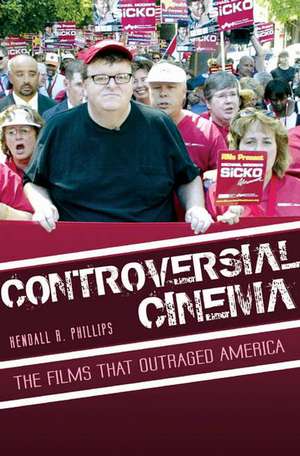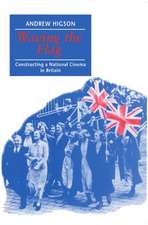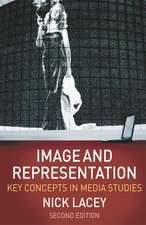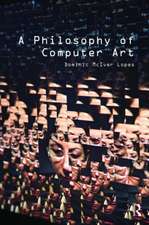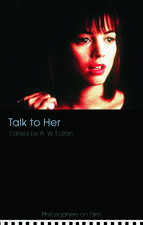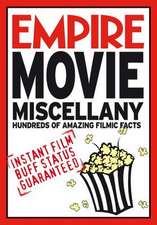Controversial Cinema: The Films That Outraged America
Autor Kendall R. Phillipsen Limba Engleză Hardback – 29 iun 2008 – vârsta până la 17 ani
Preț: 287.79 lei
Preț vechi: 415.66 lei
-31% Nou
Puncte Express: 432
Preț estimativ în valută:
55.07€ • 57.65$ • 45.57£
55.07€ • 57.65$ • 45.57£
Carte tipărită la comandă
Livrare economică 05-19 aprilie
Preluare comenzi: 021 569.72.76
Specificații
ISBN-13: 9780275994648
ISBN-10: 0275994643
Pagini: 232
Dimensiuni: 156 x 235 x 24 mm
Greutate: 0.51 kg
Editura: Bloomsbury Publishing
Colecția Praeger
Locul publicării:New York, United States
ISBN-10: 0275994643
Pagini: 232
Dimensiuni: 156 x 235 x 24 mm
Greutate: 0.51 kg
Editura: Bloomsbury Publishing
Colecția Praeger
Locul publicării:New York, United States
Notă biografică
KENDALL R. PHILLIPS is Associate Professor and Department Chair in the Department of Communication and Rhetorical Studies at Syracuse University. He is the author of Projected Fears (Praeger, 2005), and his essays and reviews have appeared in such journals as Literature/Film Quarterly and Philosophy and Rhetoric.
Cuprins
IntroductionChapter One Censorship, Culture and ControversyChapter Two Sex, Gender and Sexuality: Jonathan Demmes The Silence of the LambsChapter Three Violence and Crime: Oliver Stones Natural Born KillersChapter Four Race and Ethnicity: Spike Lees Do the Right ThingChapter Five Religion: Mel Gibsons The Passion of the ChristConclusion
Recenzii
[A] concise, highly readable, and fascinating interpretation of cinematic controversies: how they emerge, how they are resolved, and what they may reveal about the larger cultural contexts surrounding the issues. This volume works well as a companion to Dawn Sova's more encyclopedic Forbidden Films: Censorship Histories of 125 Motion Pictures. . . . it could also serve as a text for a course on film history, censorship, and US culture. . . . Recommended.
The work includes a very comprehensive introduction that can easily stand alone, along with an interesting conclusion section that provides some outstanding insights. In addition, the work has a well-crafted index and a selected bibliography, which provides a good selection of works for further examination on the subject. This book is highly recommended for all public and academic libraries, and is a must-purchase for both film scholars and everyone interested in the cinema and its affect on society.
The work includes a very comprehensive introduction that can easily stand alone, along with an interesting conclusion section that provides some outstanding insights. In addition, the work has a well-crafted index and a selected bibliography, which provides a good selection of works for further examination on the subject. This book is highly recommended for all public and academic libraries, and is a must-purchase for both film scholars and everyone interested in the cinema and its affect on society.
